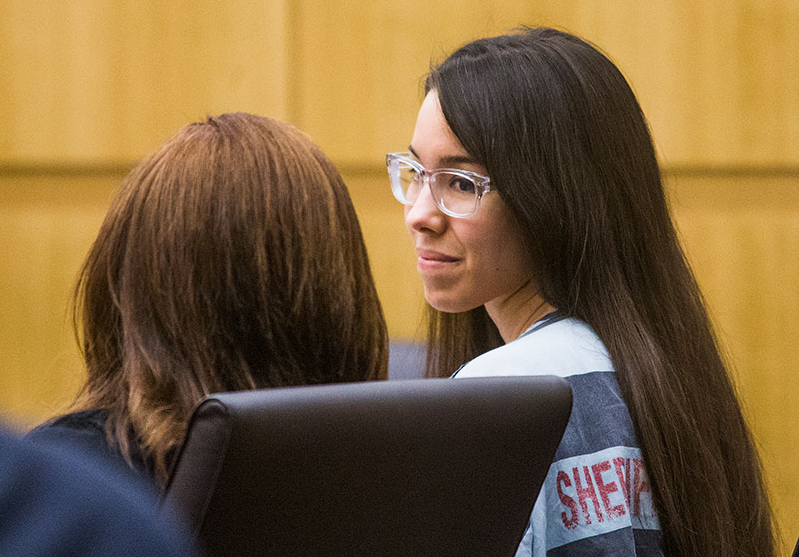
The saga known as the penalty phase of the Jodi Arias trial has finally reached the conclusion, albeit an expensive one, that she will spend the rest of her life in prison and avoid the death penalty. However, a holdout juror led to a mistrial, sparking a backlash that required authorities in Arizona to provide security.
According to EJ Montini of The Arizona Republic, pursuing a death penalty case against Arias has been expensive. He argued that aside from moral, ethical and judicial arguments, the math doesn't add up in pursuing the death penalty.
"Arias' defense has set us back over $3 million. She'll be 35 this year," Montini wrote. "If she were to live 60 more years - to 95 - the cost of keeping her in prison would top out at roughly $1.5 million. That's based on a yearly Arizona Department of Corrections report estimating the cost of housing a prison inmate for a year, which is just under $24,000."
Montini argued that the cost of her defense will go up as she pursues appeals.
"Maricopa County Attorney Bill Montgomery said the 'direct' cost to the state for prosecuting Arias was $132,787.10," Montini wrote. "That doesn't include the less direct costs like the salaries of police or prosecutors. Trials are pricey. But capital cases are much more so."
Montini reported that appealing death penalty cases have a long, complicated legal process to ensure that no "innocent person" is executed. He argued that abolishing the death penalty would save the state of Arizona money.
"As it is we've paid over $3 million to defend Arias - which will keep going up -- and we are still going to pay about $1.5 million to house her for life," Montini wrote. "And for what? The case against Arias was a stone cold lock."
As for the holdout juror who made the mistrial possible, legal analyst Monica Lindstrom of KTAR analyzed whether or not that person could be prosecuted or sued under state law thanks to that fallout. She looked at Arizona Rules of Criminal Procedure Rule 24.1, which covered motions for new trial and addressed juror misconduct.
"According to the plain words of this rule, it only comes into play if the defendant has been found guilty or sentenced to death," Lindstrom wrote in reference to Rule 24.1. "Thursday, there was no verdict. A deadlocked jury forced a mistrial."
However, prosecuting the holdout juror in the Arias trial may have its own repercussions, according to Lindstrom.
"The taxpayers are already upset about the expense of the State v. Jodi Arias trial, and it likely doesn't want to be seen as the prosecutor's office that goes after potential jurors," Lindstrom said in regards to the Maricopa County Attorney's Office. "That could cause jurors to be too scared to speak up."
Lindstrom argued that litigation shouldn't be brought up against jurors based on the decisions made in court trials, given the impact on the overall jury system. However, some people thought that such a rule would be necessary to prevent jurors from lying.
"That is a good argument but there is already a remedy for that -- the state can prosecute them for perjury," Lindstrom wrote. "It probably would not do this but it could. Allowing a civil lawsuit would essentially undermine the jury deliberation system and process."
Lindstrom argued that despite public anger over the Arias verdict, she urged people not to "lose faith in the jury system."
"It is not perfect, but it is far from being broken," Lindstrom wrote in regards to the jury system.
According to a report from the Associated Press, a judge will sentence Arias on April 13 to either life in prison or life with the possibility of parole after 25 years. In the meantime, she will remain in a Phoenix jail for now until she completes her testimony in a civil case.







